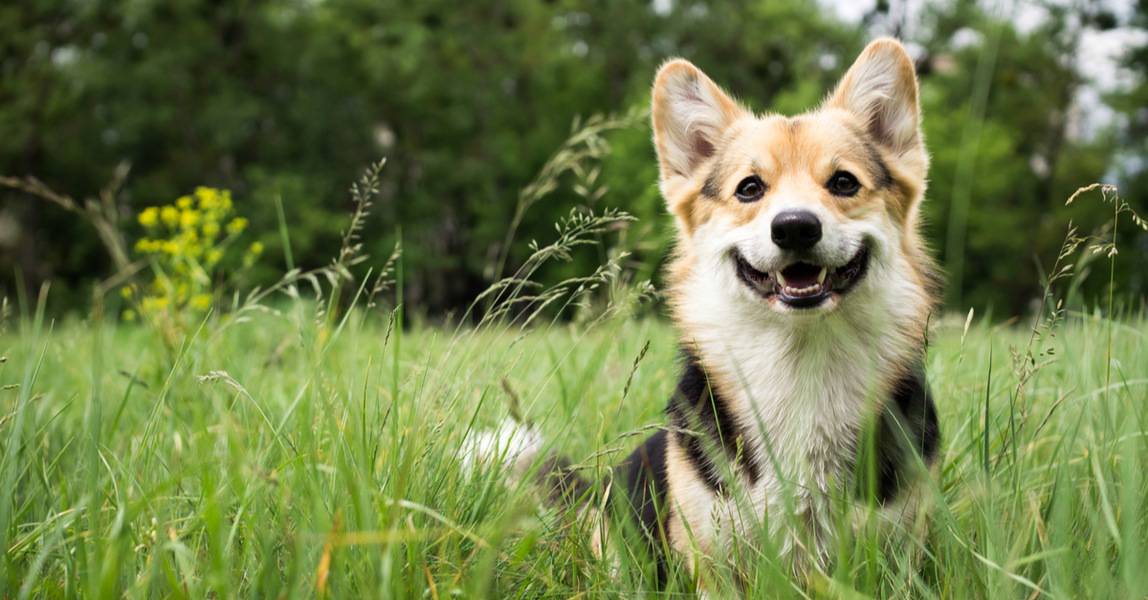“This post contains affiliate links, and I will be compensated if you make a purchase after clicking on my links.”
Depression doesn’t discriminate – our furry friends are just as likely to suffer from sadness as we are.
Because dogs are so emotionally intelligent, major life changes and other emotional disruptions can dampen their spirits. Whether you notice mood shifts in the wake of a loss or behavioral changes after a move, there are steps you can take to help.
Concerned that your dog’s in the doldrums? Ahead are ten ways to alleviate canine depression.

1. Break up boredom.
Dogs who are under-stimulated may quickly move from boredom to melancholy. That’s because they have an innate need to expend their excess energy reserves and incite their natural curiosity. Introducing some novelty like a new toy or food puzzle can help pull your pup out of her funk.
2. Establish a set exercise routine.
Some dogs may present signs of distress after a big move or new family addition. If changes to your pup’s usual routine have them a bit thrown, try walking at specific times of day to create a sense of consistency. The increased physical activity will also spark endorphin production and prevent doggy obesity that can further reduce energy levels and compound depression.
3. Increase their socialization.
Dogs are pack creatures, so time spent around other canines is important. Regular trips to the dog park or play dates with neighborhood pups are great ways to prevent, or lessen, pet depression. If Rover seems to be grieving after the loss of another pet, a new companion may be in order.

4. Focus on Training.
A disciplined dog is a happy dog. Spending some extra time training either at home or with a professional could give your dog a sense of purpose and some much needed behavioral parameters.
5. Teach them a new trick.
Increasing your dog’s focus by teaching them a series of new tricks is a great use of their excess energy. The bonding time spent together is also helpful. Putting them in a position to receive treats on a regular basis is just another one of the perks.
6. Reward positive behaviors.
It’s important to only reinforce good behavior instead of using praise or healthy dog treats as a ploy to cheer up your pup. This could actually backfire if your pooch associates snacks and affection with their downtrodden state. Simply put, wait until your pup is active and engaged before you break out the pets or the kibble.
7. Rule out medical causes.
Some depressive symptoms are actually the result of an undiagnosed medical condition. Having a quick checkup and chat with your vet will help you rule out or start treatment on any underlying health issues.

8. Try natural remedies and supplements.
Essential fatty acids from omega-3s and omega-6s are known to support everything from brain function to the immune system. There’s also been research to suggest that their anti-inflammatory properties can enhance mood. Dogs can’t produce these on their own, so look for an all-natural dog food that includes, or is supplemented with, a high quality fish oil or equivalent.
Probiotics are another type of pet supplement that have been linked with mood enhancement. The gut is home to billions of bacteria, including those that feed the “happy” endorphins like serotonin.
9. Vary menu offerings, not mealtimes.
Low blood sugar can contribute to a decreased mood, so remain strict about meal times and serve them high quality dog food to prevent a crash. If your pet’s depression is decreasing his appetite, try spicing up dry dog food with a bit of bone broth.
10. Play to their instincts.
Dogs are natural hunters. Helping them tap into their natural instincts can help them break out of a lull. Put up a bird feeder so they can watch critters and get excited for the hunt. Certain toys with specific scents or noises can also emulate prey. Even a laser pointer has been known to spark an instinctual reaction in domesticated pets.
Ultimately, most mutts’ mood changes can be self-corrected over time. Still, that doesn’t mean pet owners should ignore subtle changes. Along with a healthy, all-natural diet, a little extra attention and a whole lot of love offer the best defenses against doggie depression.

Michael Eggleston from Muenster Milling grew up in a veterinary household. His parents owned a group of vet clinics, where he worked through high school. In addition to working in the family business, they had a ranch. Needless to say, 100% of his time outside of school was devoted to animal health. Upon graduation of high school, Michael attended farrier school to learn corrective horseshoeing. He specialized in working directly with veterinarians to treat or prevent lameness in horses. While running his farrier practice, he returned to school to study Biology. His pursuit of education eventually led him to West Texas A&M where he completed his undergraduate degree in Animal Science, with an emphasis in Animal Nutrition. Michael continues to pursue and advance his education in animal science & nutrition while collaborating with PhD nutritionists in developing new diets.














